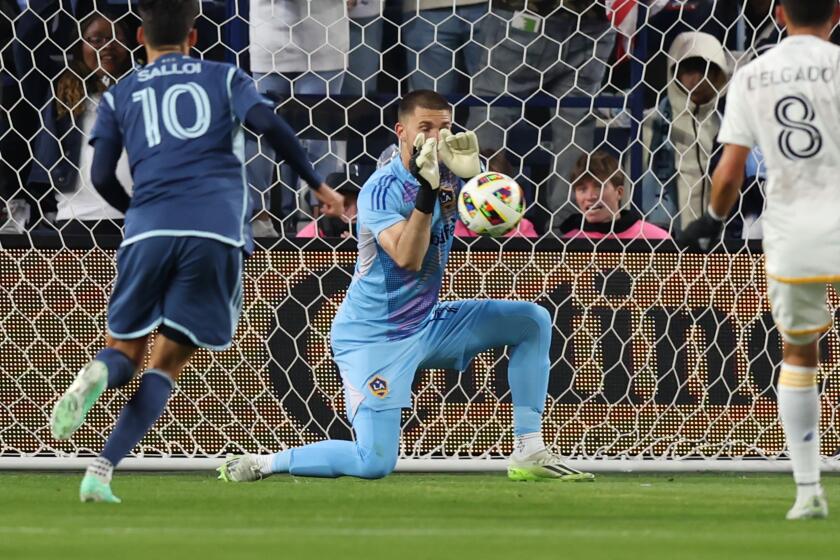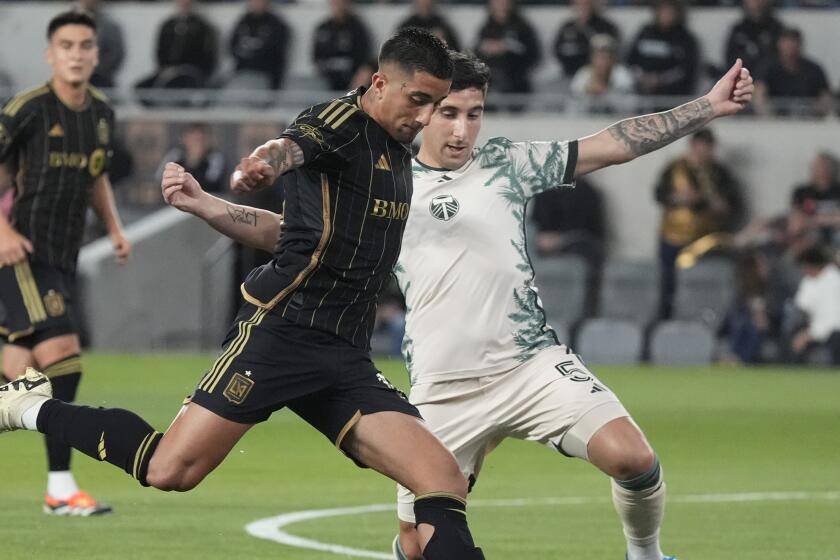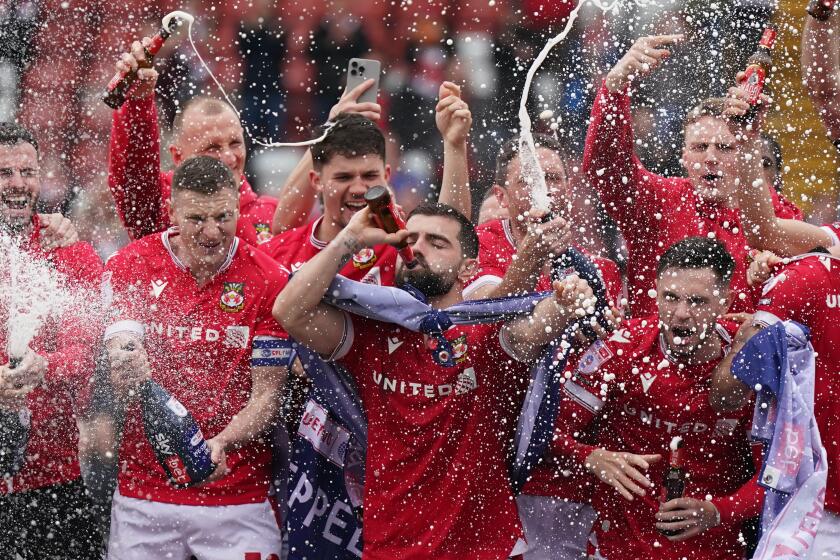An MLS strike helps no one
The question Major League Soccer’s owners and players should be asking themselves as they continue to bicker and move ever closer to a showdown is this: If there is a player strike, will anyone really care?
Soccer has made tremendous strides in North America over the last two decades, even more so since MLS was launched in 1996 in the wake of the U.S.-hosted 1994 World Cup. The landscape is now sprinkled with soccer stadia, and television features not only regular coverage of the world’s most popular sport but even entire channels devoted solely to soccer.
And therein lies the problem for MLS.
As the sport and its American audience have grown, so too has the fans’ ability to pick and choose which teams and which leagues they follow. In short, MLS is not the only game in town.
Meanwhile, Thursday at midnight the latest deadline came and went for a new collective bargaining agreement to have been settled upon by MLS and the MLS Players Union.
With no agreement reached, a player strike now seems possible. The league has said that it is willing to continue operating under the terms of the previous five-year contract and will not lock out its players.
The players say they are unified and willing to go on strike. The MLS season is scheduled to begin March 25.
As the dispute continues, one problem for MLS is that this is a World Cup year. For four weeks in June and July, the attention of every soccer fan will be focused on South Africa. Between now and then, there will be intense interest in how the 32 teams fare as they prepare for the tournament and how they stock their rosters.
Then there is the European Champions League, and the English Premier League, along with other top-flight leagues in France, Germany, Italy and Spain that are approaching the end of their season. Add to that the interest generated by the Mexican league and South America’s Copa Libertadores, and it is easy to see why MLS is only a small piece of a much larger jigsaw puzzle.
If no MLS games are played for a few weeks or months, it will not really be missed.
It is all very well for MLS owners to loftily point out how many hundreds of millions of dollars they have invested in the sport. The fact is, they have done so with a long-term financial profit in mind.
It is all very well for the players to claim that they are being held in virtual servitude, with comparatively pitiful salaries and no freedom of movement. The fact is, a significant number of them would not be able to find work as pro players other than in MLS.
But the impasse remains. The league has said it is willing to increase player compensation by $60 million over five years, but the players argue that the key issues are free agency and guaranteed contracts.
Currently, MLS clubs retain the rights to a player even if he is terminated, waived or out of contract. That, players insist, is simply not fair. “Most of it is about the basic rights for the workers in this league,” Galaxy midfielder Chris Klein told the Fox Soccer Channel earlier this week. “That’s what this negotiation is about. It isn’t about doubling our salaries.”
If an MLS player is cut, Klein said, “The club shouldn’t continue to hold that player’s rights. It doesn’t make sense.”
A strike vote could be taken as early as this weekend. That would still leave one month before the season begins to resolve the dispute.
And if it isn’t resolved, well, soccer fans will still have all those other options.




